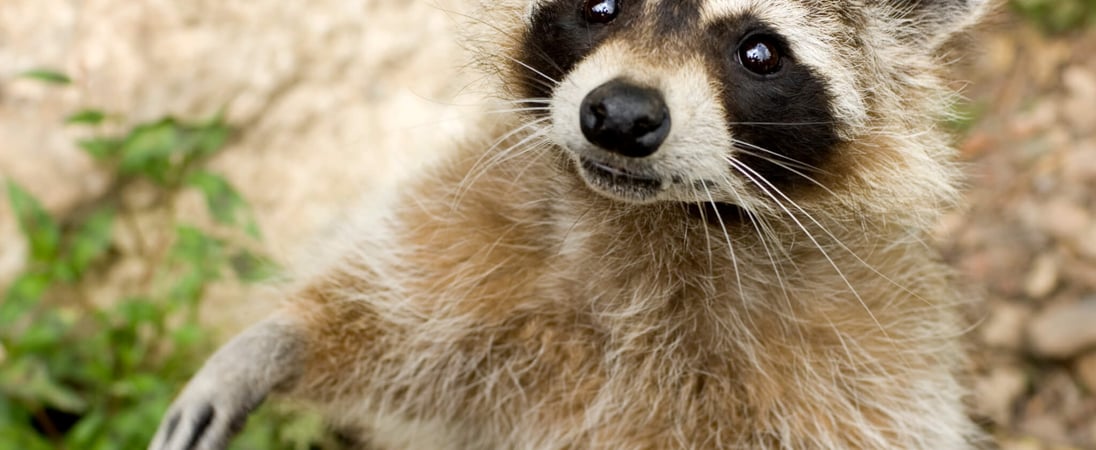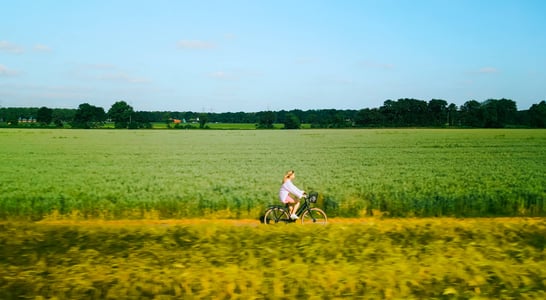
International Raccoon Appreciation Day
Mischievous little bandits with a penchant for late-night snack raids and trash can acrobatics — nature's comedians at their finest.
It’s true that raccoons have a bit of a bad reputation. After all, they dig in garbage, steal food from campers and sometimes even set up nests in people’s attics or chimneys.
But they probably don’t mean to make a nuisance of themselves. Raccoons, just like humans, are simply doing their best to get along and try to survive!
How to Celebrate International Raccoon Appreciation Day
Have fun celebrating with some of these ideas for International Raccoon Appreciation Day:
Enjoy and Share Fun Facts About Raccoons
In celebration of International Raccoon Appreciation Day, it’s a great idea to learn a bit more about these scampy little rascals and then share. Check out some of these interesting facts about raccoons:
- Raccoons are very intelligent and have even been able to open complex locks or solve puzzles. Perhaps that’s why they’re so good at getting into trash cans.
- Raccoons are super swimmers. Many people don’t realize that raccoons will fish for their dinner when given the opportunity — at depths up to 30 feet.
- Raccoons spend most of their time in trees, where they build nests and raise their young.
- Raccoons are extremely social, sometimes living in groups of up to 20 and even sharing their food and resources with others.
Learn Safety Rules Around Raccoons
Although they may be adorable with their little black masks and striped tails, raccoons actually do have the ability to be harmful to humans as well as pets. This is particularly true if the raccoon has become rabid, but even without rabies raccoons have extremely sharp teeth and claws that can inflict some damage.
Check out some of these rules about dealing with raccoons:
-
If approached by a raccoon, it is best to break eye contact and slowly back away to reduce the perception of being a threat.
-
Don’t feed raccoons. Providing a source of food makes them want to stick around.
-
When a raccoon is near, keep pets inside and find ways to close off the home, especially pet doors.
History of International Raccoon Appreciation Day
Perhaps some people think that raccoons look like large rodents, but they are actually more closely related to bears, cats and wolves. In fact, as a part of the natural world, raccoons should be appreciated — and that’s what International Raccoon Appreciation Day is all about!
International Raccoon Appreciation Day got its start in 2002 when it was the dream of a young lady in California who felt the need to garner community support for these animals.
The day was originally just called Raccoon Appreciation Day, but the term ‘international’ was added later as it began to grow, especially through Canada where raccoons also live.
Native to North America, raccoons are certainly appreciated by the people of the state of Tennessee. So much so that, in 1971, they made the raccoon their official state wild animal!
This could be partially to do with the raccoon’s association with legendary frontiersman, Davy Crockett, but also simply because the animal is found in all parts of the state.
International Raccoon Appreciation Day is here to show some love and affection for this mischievous and cheeky little scoundrel!
International Raccoon Appreciation Day FAQs
How did raccoons become associated with “washing” their food?
The term “raccoon” comes from the Powhatan word “aroughcun,” meaning “animal that scratches with its hands.”
This reflects their habit of rubbing and manipulating objects, which can look like washing.
In captivity, raccoons often dunk their food in water, possibly to enhance their tactile experience, as their paws are highly sensitive. In the wild, this behavior isn’t commonly observed.
Are there any cultural myths or legends about raccoons?
In Native American folklore, raccoons often appear as trickster figures. The Creek tribe tells tales of a raccoon outsmarting other animals, highlighting its intelligence and cunning nature.
These stories emphasize the raccoon’s role as a clever and resourceful creature.
How do people around the world celebrate International Raccoon Appreciation Day?
While primarily observed in North America, some global wildlife organizations mark the day by educating the public about raccoons.
Activities include virtual seminars, social media campaigns sharing raccoon facts, and fundraising events to support raccoon habitats and rescue centers.
What’s a common misconception about raccoons?
Many believe raccoons are solely nocturnal. While they’re mostly active at night, it’s not unusual to see them during the day, especially in urban areas where food is abundant.
Daytime activity doesn’t necessarily indicate illness; it can result from various factors, including competition and human presence.
Are raccoons found outside of North America?
Yes, raccoons have been introduced to parts of Europe and Japan. In Germany, for instance, a population established after escapes from fur farms in the 20th century.
They’ve adapted well to these environments, sometimes leading to ecological concerns due to their impact on native species.
Do raccoons have any unique physical abilities?
Raccoons possess hyper-sensitive front paws with five fingers, allowing them to open jars, unlatch cages, and even manipulate complex mechanisms.
Their tactile sensitivity is comparable to that of primates, aiding them in foraging and interacting with their environment.
How do raccoons communicate with each other?
Raccoons use a range of vocalizations, including purrs, growls, and screams, to convey different messages.
They also communicate through body language, such as tail postures and facial expressions, to signal aggression, submission, or curiosity.
Are there any famous raccoons in popular culture?
Beyond the well-known “Rocket” from Marvel’s “Guardians of the Galaxy,” a raccoon named “Rascal” starred in a 1963 memoir by Sterling North.
The book, “Rascal: A Memoir of a Better Era,” recounts the author’s childhood experiences raising a raccoon, highlighting the bond between humans and these animals.
How do raccoons adapt to urban environments?
Raccoons thrive in cities by exploiting available resources. They’ve learned to open garbage bins, navigate sewer systems, and even use buildings as dens.
Their intelligence and dexterity make them adept at coexisting alongside humans, often leading to conflicts but also showcasing their remarkable adaptability.
What role do raccoons play in the ecosystem?
Raccoons are omnivores and act as both predators and scavengers. They help control populations of insects and small animals and assist in seed dispersal through their droppings.
By cleaning up carrion and waste, they contribute to maintaining ecological balance in their habitats.
See what else is happening…
There’s always more going on every month at Days Of The Year. Here are our favorites this month!
Also on ...
View all holidaysInternational Coffee Day
Give your business to a local coffee shop, sign up for a coffee subscription, or try making a new kind of coffee at home with an espresso machine of some kind.
National Homemade Cookies Day
Cookies are fun and easy to make, so why not bake a batch to enjoy and share with family and friends on National Homemade Cookies Day!




